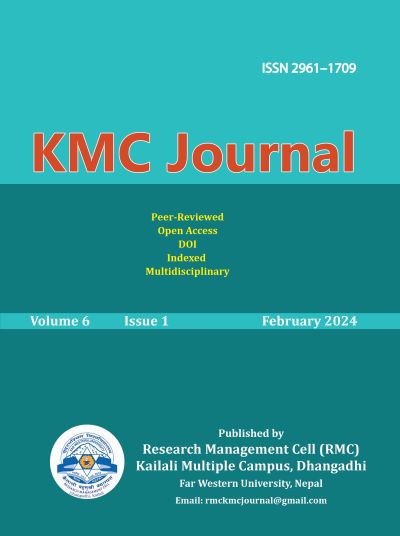Consumer Readiness on Rejecting the Choice of Consumption of Plastic Packaged Goods: A Study of Karnali Province
DOI:
https://doi.org/10.3126/kmcj.v6i1.62375Keywords:
Plastic pollution, consumer behavior, structural equation model, environmental concern, subjective knowledgeAbstract
Plastics for packaging have lead to massive environmental pollution and dreadful issues in human life. Thus consumers need to consider its deep-rooted impacts, and refuse the acceptance of plastic packaged goods. The present researchers have opted a critical constructivist perspective inclining at deductive approach to assess the consumer readiness on rejecting the choice of consumption of plastic packaged goods in the context of Karnali Province of Nepal. Causal-comparative research design was used to determine the cause or consequences of selected variables on dependent variables. In order to collect the primary data, an email survey was administered to 365 respondents of various demographic levels replied with the duly completed survey questionnaires. For the analyses, both descriptive and inferential analyses were used. The key findings of the structural equation model revealed that the plastic related concern with regard to health and environmental issues are the main factors influencing plastic rejection. Consumer readiness with regard to plastic rejection are also influenced by subjective knowledge and the weight placed on third party commitment to solving the plastic problem. The findings of the study also revealed significant contribution of the impact of employment status as the essential element determining consumer readiness on rejecting plastic packaged goods in the Karnali province. This indicates majorities of employed consumers have more readiness to reject the plastic packaged goods.
Downloads
Downloads
Published
How to Cite
Issue
Section
License

This work is licensed under a Creative Commons Attribution-NonCommercial 4.0 International License.
This license allows reusers to distribute, remix, adapt, and build upon the material in any medium or format for noncommercial purposes only, and only so long as attribution is given to the creator.




